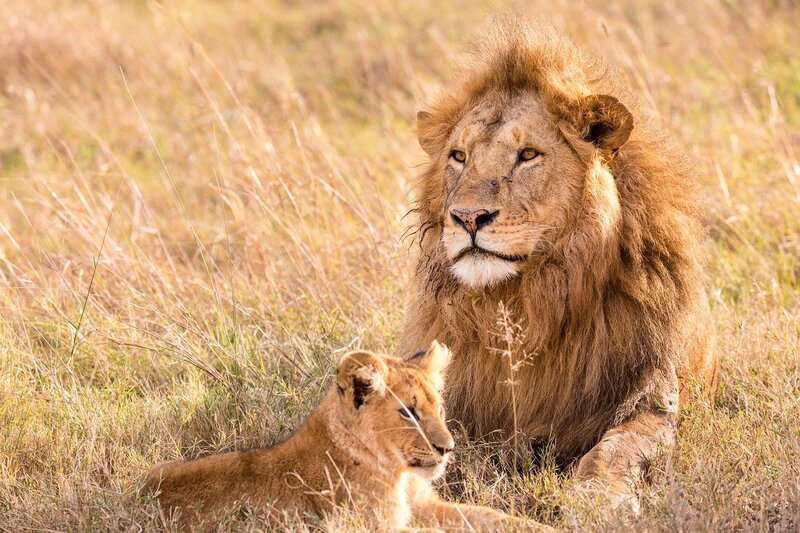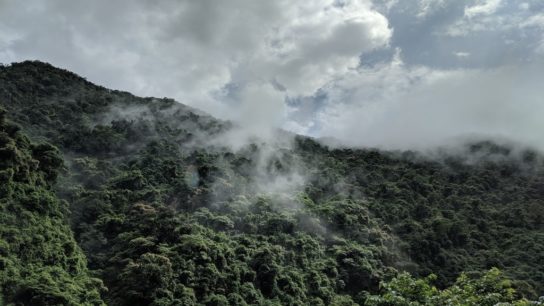Despite Africa being rich in natural capital – including resources like water, forests, fisheries, rivers and wildlife – this asset has not always been a blessing. Africa is the least wealthy continent per capita in the world, with its poor economic growth in part due to a legacy of European colonisation, undemocratic rule, and unsustainable exploitation of its natural capital. It is crucial that such natural capital is managed effectively to unlock Africa’s potential and allow it to prosper economically, environmentally and socially.
—
Africa has long been a continent rich in natural resources. With a wealth of minerals like gold and diamonds, forests full of a dizzying array of wildlife and an abundance of oil, the continent holds a significant proportion of the world’s natural resources. Yet Africa’s entire combined GDP is barely a third of the US’. Behind this are decades of improper management, illegal activities and exploitation. Africa loses an estimated USD$195 billion annually of its natural capital through an array of illegal activities including financial flows, mining, logging and the wildlife trade, alongside unregulated fishing and environmental degradation.
This lack of management of Africa’s natural resources has led to a plethora of problems including poverty, exacerbation of climate change, malnutrition and violence. The Sahel, a region stretching from Senegal to Sudan, is a prime example of this. The Sahel’s agricultural land has been so severely exploited and degraded that 80% of it has subsequently turned to desert through desertification. This means the region has experienced a colossal reduction in natural resource availability as soils are less able to support crops, livestock and wildlife. The Sahel’s issues have been further exacerbated by increased droughts caused by the current climate crisis. Such scarce natural resources have given rise to food insecurity, conflict and violence in the region. This has been seen with Mali’s current civil war, the origins of which have been linked to droughts and food shortages.
You might also like: The Environmental Consequences of Political Repression
A top UN humanitarian official, Mark Lowcock, has warned that Africa’s Sahel Region is at the centre of the accelerating climate crisis and a “canary in the coalmine of our warming planet”. He says: “We’ve seen a sharp deterioration over the past two years – humanitarian needs in the central Sahel are higher than they have ever been, and the rate at which needs have increased is truly alarming. Right now, in the central Sahel, the number of people forcibly displaced has risen more than twentyfold in the last two years. More than seven million people have been pushed into acute hunger. All told, more than thirteen million people need emergency assistance to survive. Five million of them are children.”
One project introduced in the Sahel to help alleviate the negative effects of desertification is the Great Green Wall of Africa, a 15 km wide and 8 000 km long plant barrier along the Sahel. First proposed in 2007, the African Union launched the idea of reforesting 100 million hectares of degraded land, four times the size of the United Kingdom. Such dimensions would surpass any collective work carried out by humankind. The sole purpose of this ‘wall’ was to reduce the incidents of drought in the Sahel region, reduce the impacts of climate change by sequestering carbon, and reduce conflict, terrorism and migration. Now well into its second decade, a UN status report published this year said that just 4% of the target has been met, with four million hectares of land rehabilitated. A lack of funding is the primary reason why this project has not been scaled at the necessary pace.
Africa’s immense natural capital is its greatest asset, yet its greatest downfall. The economic boom of Africa is happening, but its development is being hindered by poor management of its rich natural resources that is causing many of Africa’s conflicts and environmental issues. Initiatives such as the Great Green Wall are an excellent start, but the key to managing its natural capital effectively is through good governance. Only then can political violence end, illegal activities be curbed, and Africa’s natural wealth be conserved. More international and regional cooperation is crucial to aid this process and achieve a peaceful and prosperous continent.














